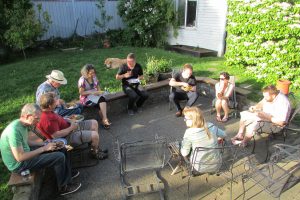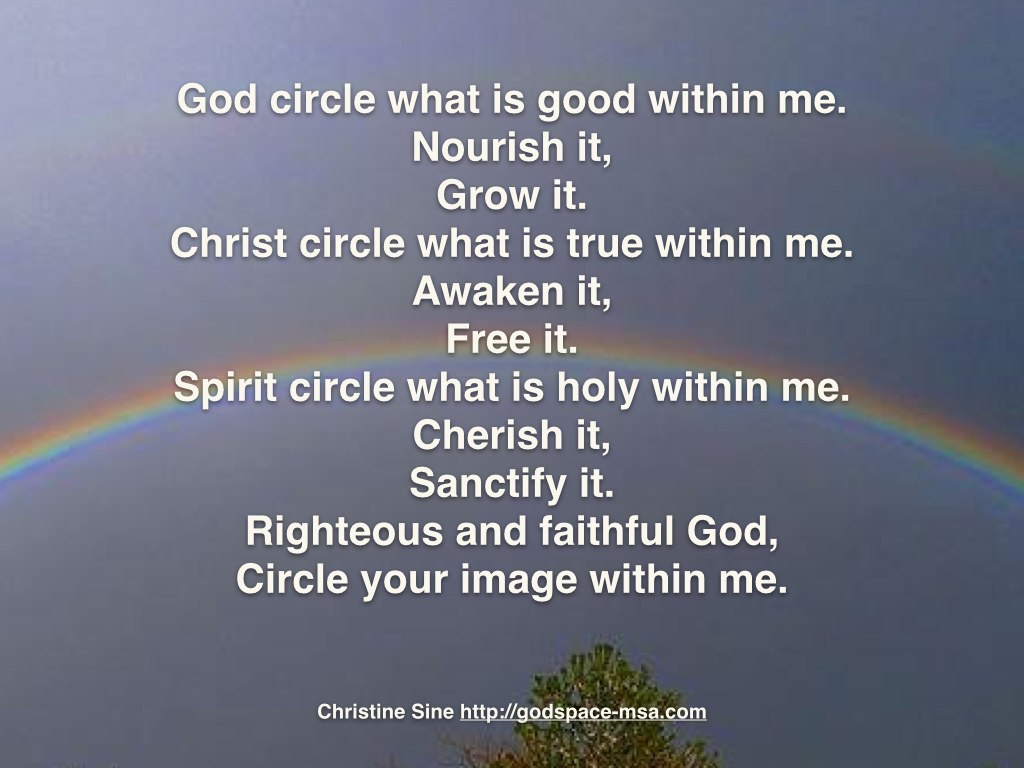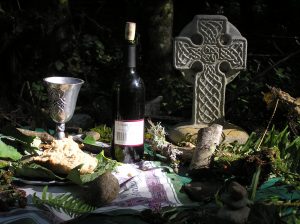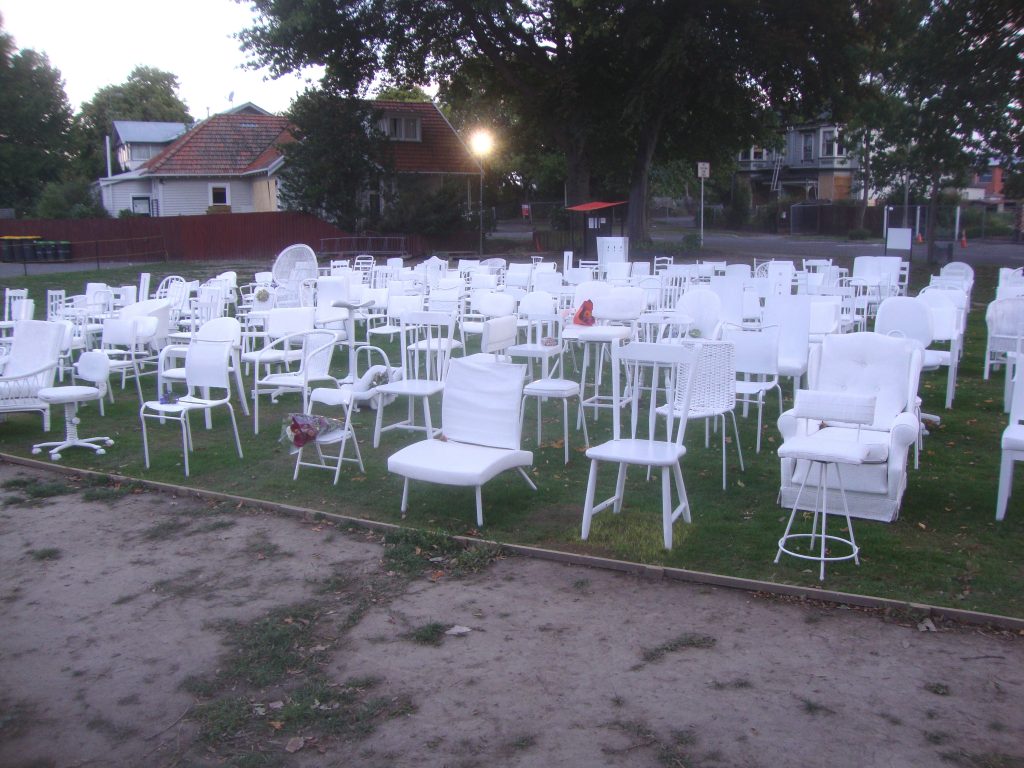Loving and nurturing God, we thank you for mothers.
for all they mean or have meant,
for the love they have shown and the care they have given.
For the many times they held us close.
Loving and nurturing God we thank you for the qualities of mothers.
their patience, their kindness, concern and understanding.
We thank you for the part they play in our lives,
and for this day of saying ‘thank you’
Loving and nurturing God we thank you for the wonder of your mothering.
As a mother protects her children, you watch over us day by day,
your arms constantly encircle and protect us,
your hands shield and deliver us from harm.
Loving God, we pray for those for whom Mother’s day is a time of heartache rather than a celebration.
We pray for those who have never known their mother or whose mothers have died.
We wait with those who long to be mothers but as yet have not had their own children.
We grieve with those who ache because they will never be mothers.
Lord in your mercy, mother them with your love.
We pray for those who struggle with the way their children have chosen to live their lives.
We pray for those who have a difficult relationship with their mother.
We pray for those who are orphaned or abandoned and long for a mother’s love
Lord in your mercy, mother them with your love.
May all of us have the comfort of knowing that your mothering love is constant,
your understanding is perfect,
your compassion is never-ending.
Lord in your mercy mother us all with your love.
Amen
This prayer was inspired by and adapted from these mother’s day prayers.
Sunday is Mother’s Day and this is the first I have celebrated since my mother’s death. I am not the only one. It seems to me that in the last year many of my friends have lost mothers. We are still grieving and facing a day like this brings back those memories. In some ways it is harder because others are celebrating the joy of being together with their mothers.
Fortunately this day does not just bring back memories of loss. It also brings back memories of joy. I sat here this morning remembering some of my happiest memories of times with my Mum over the last 60 year. I remember her playing with my brothers and me in our backyard when we were kids. I remember her making dresses for me, and teaching me to cook. I remember the trips we took together over the last few years since my Dad died, and I remember the good but painful days I spent at her bedside in those last few days of her life.
Last year for her 90th birthday I put together a memories book for Mum, not realizing that it would become such an important memory book for me too. I will probably look through it many times this weekend laughing, crying and remembering the specialness of my Mum.
These are not the only memories that this day has stirred. Strangely I find myself grieving for the motherhood I have never and will never know. This grief has caught me unawares this morning. And I think of my many friends who like me will never have children and for whom the memories of Mother’s day are not necessarily happy. I think too of those who have never known their birth mothers and who still struggle with issues of abandonment. Being separated from our mothers leaves wounds from which I don’t think we ever fully heal.
Fortunately my thoughts do not stop there. There are many for whom I have played a mothering role. Even my little brother called me yesterday acknowledging that I am his surrogate mother for this season. There are others that I have mentored through hard times. And still others whose lives I have nurtured as I worked in the refugee camps in Thailand and handed out medicines in Africa.
Lastly I am remembering those who have mothered me in the past especially Nan Cowie and Margaret Murray in New Zealand and Nettie Burge on the ship. All of us need mothering, no matter what our age and stage in life and God so often provides even when our own mothers are far away.
So this Mother’s day whether you celebrate with Mum or apart from her, take time to remember. Celebrate the joy of who she and at the same time celebrate your own mothering (or fathering) role. These kinds or relationships are central to our faith and to our lives.
Don’t forget to show hospitality to strangers, for some who have done this have entertained angels without realizing it! (Hebrews 13:2 NIV)
These words revolve in my mind today as I remember rich hospitality we have experienced in the last couple of months and anticipate the hospitality to come. Easter is over and we have entered a season that beckons us to be hospitable to friend and stranger alike. One of Christ’s first appearances after his resurrection is as the stranger on the Emmaus road, His true nature is recognized only when he breaks bread together with his fellow travellers. This is the first Eucharistic celebration of the new kingdom. He also comes as Christ, the friend by the sea of Galilee, preparing breakfast for his closest followers.
Through the doorways of hospitality to friend and stranger, those first disciples were welcomed to the banquet feast of God. Today too, the purpose of God’s people is to invite stranger in and offer hospitality by breaking bread together, sharing the Eucharistic feast. By so doing we both welcome Christ and represent Christ.
Hospitality a way of life at the Mustard Seed House
Hospitality has always been an important value for us at the Mustard Seed House. A couple of weeks ago we hosted Al Tizon, co-president of Evangelicals for Social Action, and Shane Claiborne from the Simple Way, as well as MSA’s own team member Andy Wade for the Inhabit conference. This last week our good friend worship curator Mark Pierson from New Zealand spent several days with us, and this today we yesterday Dave Jansen from Reba Place came to stay overnight.
Later in May Tim Nafziger assistant director of Christian Peacemaker Teams and his wife Charletta will visit us. Then June 9th we will host Chris Smith and John Pattison for a discussion of their book Slow Church
Hospitality at Godspace
As we head into the summer here in the northern hemisphere many of us are gearing up for hospitality – BBQs, visits from friends and relatives, mission trips. Hospitality is all around us at this season and we thought that we would make it the theme for the season on Godspace too. To be more specific our theme is Hospitality – Opening Doorways to the Kingdom we hope you will join us:
- How have you experienced the hospitality of God through strangers? Perhaps you have welcomed strangers who have turned out to be angels in disguise. Or maybe you have been a stranger and known the welcome of others. Consider telling your story in a blog post on Godspace in the next few months.
- There are other aspects of hospitality you might like to write about too – like how to be hospitable on a budget, or how to host a potluck that is a safe space for people with allergies and other restrictions. Perhaps you want to share about a ministry at your church or in your community that is based on hospitality. This offers up many fun opportunities for us for the coming months and we hope that you will participate.
- Contribute a recipe or describe a craft that you use for hospitality with the story of how this became important and why. Last week I posted this recipe for quinoa muffins which I made to provide a quick and easy but nutritious breakfast for my Inhabit guests. Recipes like this make hospitality simple yet festive, welcoming and fun.
This promises to be an inspiring, and fun blog series over the next few months and we hope that you will contribute, read along with us and share with your friends. This is an open invitation, an offer of hospitality for involvement in the blog too. So please let your friends know and invite them to contribute too.
Over the last few days a number of my friends have shared about the missing girls in Nigeria. My heart aches for them and their families.
This was the first image to catch my attention.
Then Sarah Bessey posted this poignant prayer
Our Father who art in heaven, bring back our girls.
Two-hundred-and-twenty-three precious young women are still lost to us. We are weeping for our children, hear our prayer.
And today my friend Tom Balke posted the names of some of these young girls. The list is overwhelming and unfortunately many of us do feel both overwhelmed and impotent. Apart from praying and posting our concerns on Facebook or twitter, what can we do?
Nicholas Kristoff in this excellent article Bring Back Our Girls increased my understanding of why this is so important.
In hopes of viral pressure on Nigerian authorities to try to recover the girls, campaigns have started on the White House website, on Change.org and on Facebook to demand: “Bring Back Our Girls.” All this may or may not help, but it’s worth trying.
Pressure is mounting and today the Nigerian government begged for help and the US government sent in a team. What else can we do?
We can keep the pressure coming. One of my concerns is that this must not become a five day wonder that we soon forget about as another catastrophe takes its place in our minds.
There are other ways we can help too. As Nicholas Kristoff says,
The best tool to fight extremism is education, especially of girls — and that means ensuring that it is safe to study. The greatest threat to militancy in the long run comes not from drones but from girls with schoolbooks.
Part of what we can do is support organizations that help to educate women and girls,
Or perhaps we can get involved in educating girls who live in poverty – starting with our own neighbourhoods.
Other issues face girls and women that strip them of their rights. I love this idea that Jamie Arpin Ricci made me aware of yesterday. Simple ways to carry water that do not involve the back breaking work of carrying it on ones’ head can save the lives of women and girls for whom this is a daily chore.
Or perhaps you like this idea for providing solar cookers for refugee women which the Jewish World Watch initiated.
None of us are powerless but we may feel as though we are. So as you pray for the girls in Nigeria ask yourself what you personally could do to make a difference for the many other girls around the world who face the same challenges.
The following prayer was inspired by this photo of a double rainbow that my friend Andy Wade sent me. The circle is very important in Celtic spirituality. A Celtic cross, which is made up of a circle superimposed on a cross, expresses the unique way in which Celtic Christianity incorporated the people’s sense of wholeness in creation and joined it with the image of Christ. This calls me to recognize the image of God in all persons, and the presence of God in all creation.
This is the second of a series of short videos taken from a discussion with Mark Pierson held in our backyard this last week. Again my apologies for the poor quality of the video but I know that Mark’s creativity is so inspirational that you will forgive me that. I love the way that he takes elements of the local culture and incorporates them into our experience of communion. Like Mark I am intrigued with ways to express our faith in culturally specific ways.
One very profound celebration I was a part of here in Seattle was when another very creative friend of ours, Steve Taylor had us out foraging for cedar branches and Starbuck’s cups. We started our conference with a beautiful blessing ceremony using these local symbols – one natural, one part of the culture, and sprinkled the audience with water.
One of the delights of our lives is the opportunity to offer hospitality to people from around the world. This last week Mark Pierson from New Zealand, author of The Art of Curating Worship was with us. Over this next week I will share several snippets from the talk that he gave in our backyard about different aspects of worship. I wanted to start with this description of the installation his friend Peter Majendie constructed as a memorial following the Christchurch earthquake. A good friend of mine was killed in the earthquake and listening to the description ministered deeply to me and I thought it would to others as well. Unfortunately the quality of the video is not good and at one point our dog Bonnie interrupts the flow but you can still get an idea of what this powerful memorial installation involved. Adrienne Rewi gives an excellent description of the installation here: 185 empty chairs and a church.
As an Amazon Associate, I receive a small amount for purchases made through appropriate links.
Thank you for supporting Godspace in this way.
When referencing or quoting Godspace Light, please be sure to include the Author (Christine Sine unless otherwise noted), the Title of the article or resource, the Source link where appropriate, and ©Godspacelight.com. Thank you!








